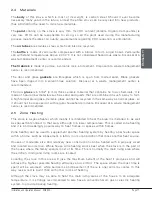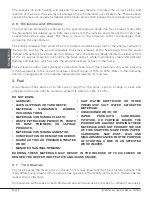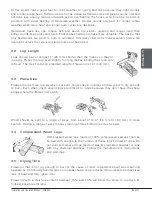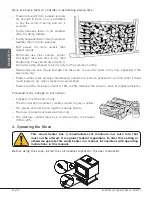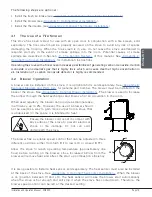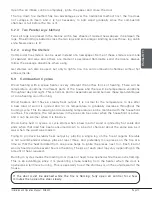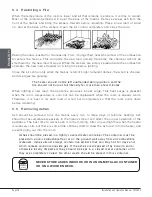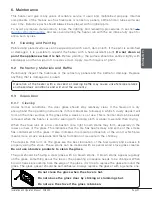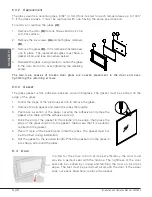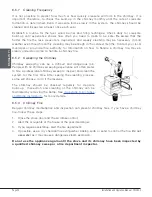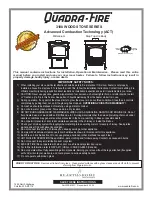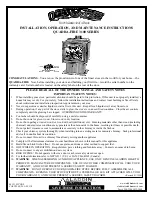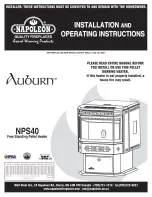
Page 11
Installation and Operation Manual - FW3500
ENGLISH
2.4 Materials
The
body
of this stove, which is most of its weight, is carbon steel. Should it ever become
necessary many years in the future, almost the entire stove can be recycled into new products,
thus eliminating the need to mine new materials.
The
paint
coating on the stove is very thin. Its VOC content (Volatile Organic Compounds) is
very low. VOCs can be responsible for smog, so all the paint used during the manufacturing
process meets the latest air quality requirements regarding VOC reduction or elimination.
The
air tubes
are stainless steel, which can also be recycled.
The
baffle
is made of vermiculite compressed with a binder to form a rigid board. Vermiculite
can withstand temperatures above 2,000°F. It is not considered hazardous waste. Disposal at a
waste management center is recommended.
The firebrick
is made of pumice, a volcanic rock, and cement. Disposal at a waste management
center is recommended.
The door and glass
gaskets
are fibreglass which is spun from melted sand. Black gaskets
have been dipped into a solvent-free solution. Disposal at a waste management center is
recommended.
The door
glass
is a 5/32" (4 mm) thick ceramic material that contains no toxic chemicals. It is
made of natural raw materials such as sand and quartz that are combined in such a way to form
a high temperature glass. Ceramic glass cannot be recycled in the same way as normal glass, so
it should not be disposed of with regular household products. Disposal at a waste management
center is recommended.
2.5 Zone Heating
This stove is a space heater, which means it is intended to heat the area it is installed in, as well
as spaces that connect to that area, although to a lower temperature. This is called zone heating
and it is an increasingly popular way to heat homes or spaces within homes.
Zone heating can be used to supplement another heating system by heating a particular space
within a home, such as a basement, a family room or an addition that lacks another heat source.
Houses of moderate size and relatively new construction can be heated with a properly sized
and located wood stove. Whole house zone heating works best when the stove is in the part of
the house where the family spends most of its time. This is normally the main living area where
the kitchen, dining and living rooms are located.
Locating the stove in this area will give the maximum benefit of the heat it produces and will
achieve the highest possible heating efficiency and comfort. The space where the most time is
spent will be warmest, while bedrooms and basement (if there is one) will stay cooler. In this
way, less wood is burnt than with other forms of heating.
Although the stove may be able to heat the main living areas of the house to an adequate
temperature, it is strongly recommended to also have a conventional oil, gas or electric heating
system to provide backup heating.











